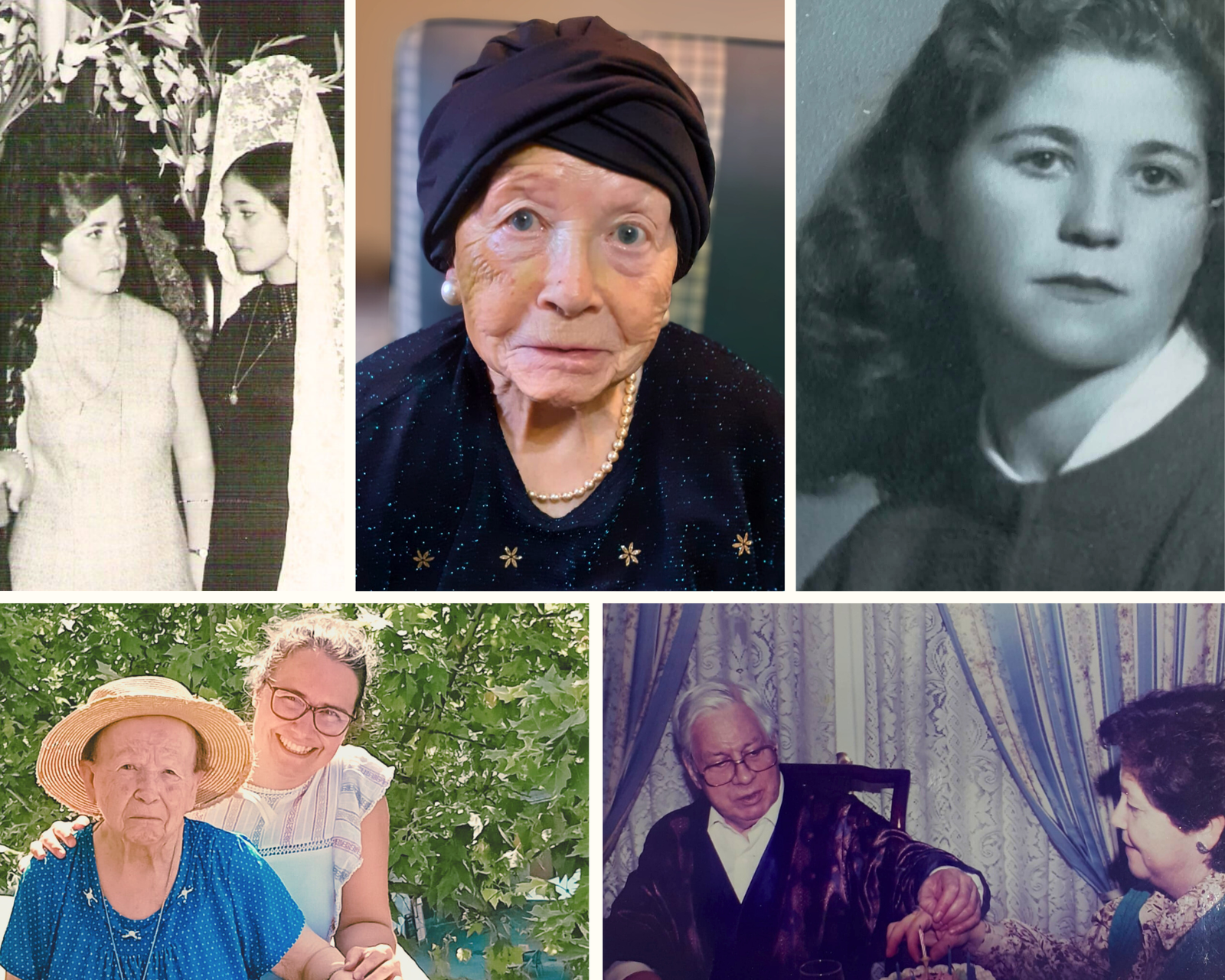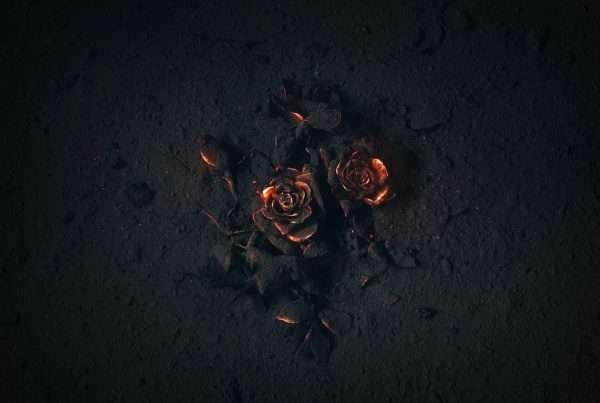With the book of poetry entitled Triptych, the young Spanish poet Izara Batres (Madrid, 1982) has been awarded the Fernando Rielo World Prize for Mystical Poetry, in the ceremony held on December 14th at the Spanish Embassy to the Holy See. The Prize endowment consists of Euros 7,000 as well as publication of the winning work and a commemorative medal. The winner holds a doctorate from Madrid’s Complutense University, has published five books and poetic anthologies that include works that have already received several literary prizes. Her unpublished collection Triptych soared above the remaining nine finalists, among whom were renowned poets, including an academician of the Spanish Language, who presented poetic works notable for both technical expertise and intense lived experience.
According to the Prize Jury, “her work transfigures the experience of suffering, using precise poetic language, free from useless expression, bare and transparent, to convert it into the channel of encounter with a God to whom the poetess clings feverishly: “It was necessary to die in love / and in pain / to see you, to see me, / to know who I was.” Her lyrical voice maintains a firm, forceful, sincere tone, without falling into either uprooted lament or despair, because the intensity of the suffering is transformed into imploring and trusting expressions of love: “I feel your hand, blue and sweet, over my wound.” In the end, the tenderness of love overwhelms the suffering, the purification, in a pure ecstasy of lights: “I look for the heaven of your virtue in the dazzling tenderness / of the springtime / that is born in your hands.” It also makes us partakers of inspiration in the intimate experience of grace: “I know that God is dictating my verses, / I know that you are here / and beyond this body and this pulse, the bond imposes its meaning, / I feel you in the soul.”
The names of the remaining finalists are as follows: from Spain, Alfonso Crespo Hidalgo
(Córdoba), Antonio Díaz Tortajada (Valencia), Francisco Jiménez
Carretero (Albacete), Elena Martín Otín (Madrid), and Virginia Sánchez Nuño
(Ciudad Real); from El Salvador, Carmen González Huguet (Cuscatlán), and
Claudia Lorena Parada Turcios (San Salvador); from Argentina, Cledia Teresa
Báez (Bahía Blanca); and from Poland, Elzbieta Buczkowska (Zabrze).
The Jury was presided over by the literary critic José Mª. López Sevillano (Spain), Permanent Secretary of the Prize; Rafael Fernández Hernández (Spain), tenured Professor of Literature at the University of La Laguna; Arnaldo Colasanti (Italy), poet and literary critic; David G. Murray (U.S.A.), literary critic and specialist in English philology; and Alberto Giralda Cid (Spain), literary critic.
During the Award event, after the greeting of the Spanish Ambassador to the Holy See, His Excellency Eduardo Gutiérrez Sáenz de Buruaga, there was the address by the President of the Committee of Honor, His Eminence Marc Cardinal Ouellet, Prefect of the Congregation for Bishops, who underscored the importance of the Prize as a message of hope to contemporary human beings, presently divided among so many discordant languages and unable to hear the cry of their own heart thirsting for God. He stated that mystical poetry promotes Truth, Goodness, and Beauty and is realized in an absolute way in God, but is present in every person, apart from geographic, ethnic and religious boundaries.
The President of the Fernando Rielo Foundation, Fr. Jesús Fernández Hernández, also spoke, recalling the words of Fernando Rielo, creator of the foundation and prize bearing his name: “Today, more than ever before, our society needs mystical poets: those able to elevate to artistic expression their own experience of God. This fact should not go unnoticed by those who recognize themselves as Christians or Jews or Muslims or Buddhists, or simply believers of any religion.” He also recalled the words of the Catholic theologian Karl Rahner, who predicted that the Christian of the future either will be a “mystic” or not be a Christian at all, adding that the spirituality of the future would not depend on convictions or widespread religious environments, but rather on the experience of God and one’s personal decision.
The event was crowned by a concert of duo violins Marco Fiorini and Biancamaria Rapaccini, members of the Quartetto di Roma, with a repertory of Jean Marie Leclair, Henryk Wieniawski, and Louis Spohr.The Prize for unpublished works in either Spanish or English has held its award ceremonies in venues such as the United Nations, UNESCO, the French Senate, and the Roman Campidoglio. Each year the Prize enjoys the support of an ample Committee of Honor comprised of academicians of the Spanish Language, of History and the Moral and Political Sciences, as well as writers, poets, hispanists, and rectors of universities.The ecumenical character of the Prize has occasioned its being awarded to poets of diverse Christian confessions and also non-Christian confessions, demonstrating that mystical poetry is capable of uniting cultures and religions. Bio-data of Izara Batres (Madrid, 1982)Izara Batres holds her doctorate in Literary Studies from the Complutense University of Madrid.In 2004 she received the Prize of the Siruela Publishing House for her essay on “The World of Sofia.” In 2007, she received the first Prize of the newpaper El Pais as the winner of the competition of narratives of EP3 “Talents,” with her work “The Patient.”
She is the author of five published books: the poetic collection Avenues of Time (Vitruvio, 2009) and Fire toward the Light (Sial, 2011), the book of narratives Confessions to the Psychoanalyst (Xorki, 2012), the novel ENC or The Dream of the Firefly Fish (Xorki, 2014), and her doctoral thesis published as essay: Cortazar and Paris: Last Round (Xorki, 2014).
She is a professor of Creative Writing, and also of Language and Literature. She collaborates with various cultural publications and with a Madrid-based publishing house.
She has been interviewed about her poetry in the communications media, such as Cadena SER (where she recited her poems on Madrid Today), La Cope (on the program El laboratorio), Spanish National Radio (on the programs Continuum y Viaje al centro de la noche), RVK (on the programs La autopista y Poetas en el aire). Her poems have been included in anthologies such as Poesía Hispanoamericana actual, Los poetas de la senda o Poetas siglo XXI.











